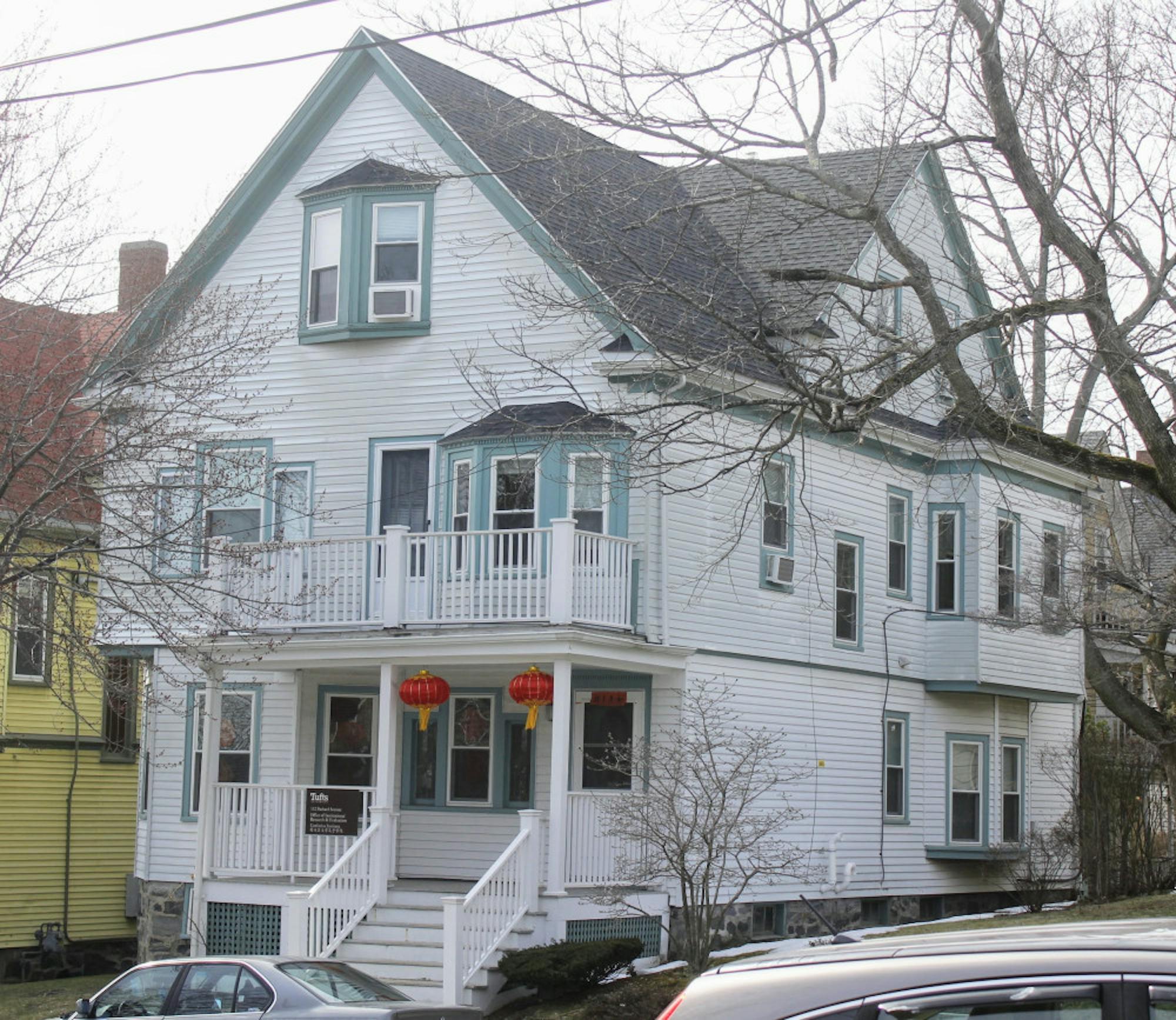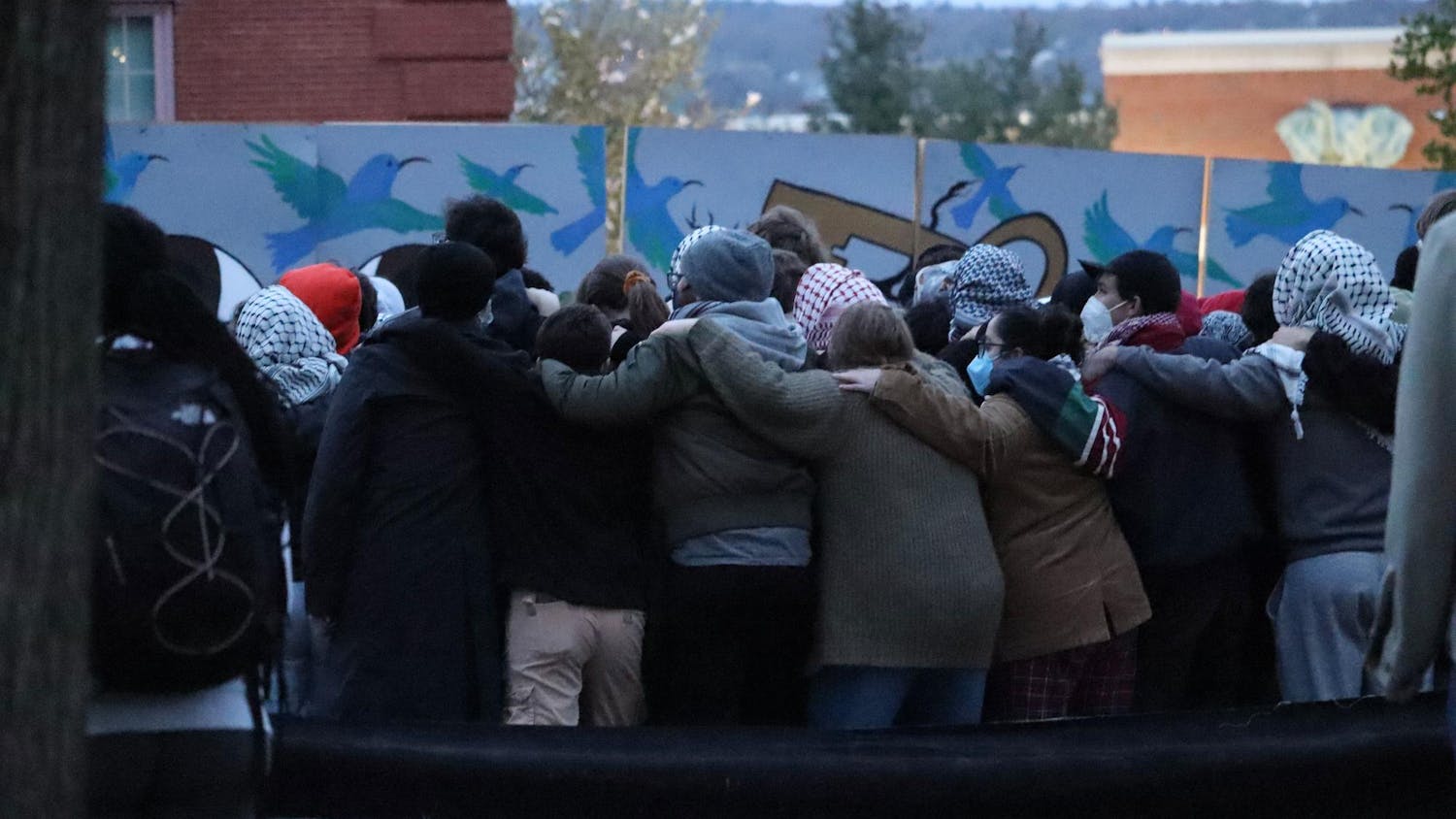Disclaimer: Tys Sweeney is a columnist for the Daily. He was not involved in the writing or editing of this article.
Tufts' Confucius Institute Review Committee held its final open meeting in Eaton Hall on Oct. 31 to discuss the university’s relationship with the Confucius Institute (CI), which promotes Chinese language and culture and has financial ties to the Chinese government. A previous meeting was held on Oct. 16 in Coolidge Room of Ballou Hall, according to the committee's email to the Tufts community. Tufts has been considering whether or not to renew its contract with the CI, which is scheduled to expire in June 2019, since June of this year.
Debate regarding press attendance at the open meeting ensued, as the Review Committee was not in favor of media outlets being present.However, a reporter from the Daily remained at the meeting, which was attended by about 50 people, and conducted interviews with attendees after the event.
First-year Haitong Du shared his opinion that the university should maintain its relationship with the CI.
“My experiences with the CI have been generally positive ... many people are concerned that people working at the CI are spies of the Chinese government, but this is not the case at Tufts," he said.
Du noted that with rising tensions between China and the United States, events like the CI's Mid-Autumn Festival celebration are beneficial because they familiarize Americans with Chinese traditions.
"I believe that is what we need [in this] time of political confrontation between the U.S. and China," he said. "People in the U.S. are generally hostile against the Chinese culture, and if the CI can facilitate this cultural exchange, it would be helpful.”
He shared that the CI provides services that are not otherwise offered by Asian culture groups on campus, such as the Chinese Students Association and Singapore Students Association.
“I have been to some of their events and, first, in comparison to the events organized by the CI … they are loosely organized [and] very much based on friends' invites, so they have a lot less impact, and they cost money," Du said. "These are some big factors that deter students from joining.”
Human rights activist Yang Lan, who was wounded in the 1989 Tiananmen Square protests, according to the Tibet Action Institute, was present at the open meeting and discussed his opinions about the CI in an interview with the Daily.
Lan characterized the Chinese Communist Party, not the Chinese government, as the oppressor of the people. He added that the CI is part of the oppressive regime.
“[The CI] is just a tool of Chinese propaganda for the Chinese Communist Party," he said.
Lan claimed that the CI cannot accurately represent Chinese culture to Americans.
“Tufts and American students and professors want to know more about Chinese culture, but the Confucius Institute cannot do that in an accurate way," he said. "Of course, [the CI] can give information about Chinese language and cultural elements, but I think it's twisted, very shallow and incomplete."
Sophomore Tys Sweeney was also present at the Review Committee's open meeting.
“I think the faculty and staff prefer this [review] process go unnoticed ... and present the face that they want to hear people’s voices but they don’t want that," Sweeney said. “[The CI] compromises the integrity of the university ... Tufts is saying, ‘Sure, we will give you our space and [the CI] will give us money and programming.' Even if we can’t replace it, we shouldn’t be compromising the integrity of the university, of free thinking and free pursuit of knowledge.”
Sweeney added that the university should fund a Chinese cultural center instead.
Jessica Kline, a master's candidate at the Fletcher School of Law and Diplomacy, echoed Sweeney's disapproval, questioning the objectivity of the academic curricula that the CI offers.
“If [the CI is] supplying textbooks, [one has to ask] ‘What is being portrayed in these textbooks?’" Kline said. "We know that the Communist Party of China has a lot of human rights violations, [and] there is a general concern that by promoting the CI, they are silencing human rights issues and human rights defenders."
The Review Committee will submit a summary of its findings and recommendations to the Provost and the Dean of the School of Arts and Sciences by Nov. 20, according to the press release announcing its formation.
Confucius Institute Review Committee hosts final open meeting

The Confucius Institute at Tufts, located on Packard Avenue, is pictured on March 27.





